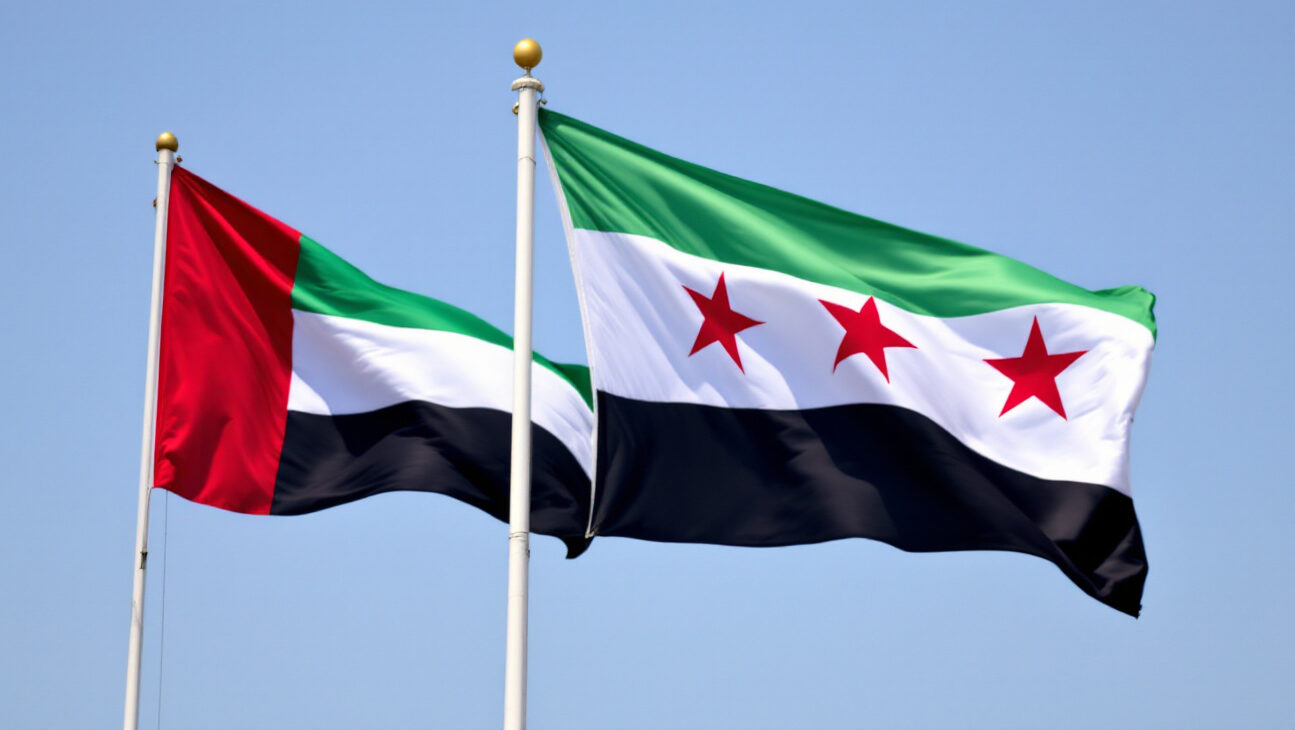Syria and UAE Reopen Air Links, Pledge Economic Cooperation
[Damascus] Syrian President Ahmed al-Sharaa made his first official visit to the United Arab Emirates earlier this week, signaling a shift in the evolving relationship between Damascus and Abu Dhabi. Al-Sharaa, who took office in January, was welcomed by UAE President Sheikh Mohamed bin Zayed Al Nahyan in Abu Dhabi—a gesture reflecting the two countries’ growing diplomatic engagement.
During the high-profile meeting held at Al Shati Palace on Sunday, the two leaders reaffirmed their commitment to strengthening bilateral ties and explored avenues for expanded cooperation across multiple sectors. Discussions also addressed regional issues and ongoing reconstruction efforts in Syria. The Emirati president reiterated Abu Dhabi’s steadfast support for Syria’s sovereignty, territorial integrity, and national unity.
“The stability and security of Syria is in the interest of the entire region,” Sheikh Mohamed stated, emphasizing that the UAE would spare no effort in supporting Syria during its transitional phase and rebuilding process.
One of the key outcomes of the visit was the formal reopening of civilian and commercial air routes between Syria and the UAE—a step symbolic of normalized ties and practical cooperation. Additionally, the two countries announced several upcoming economic initiatives aimed at revitalizing Syria’s war-torn economy.
Al-Sharaa expressed deep gratitude for the Emirati hospitality, describing the visit as “remarkable” and a testament to the “strong historical and brotherly relations between Syria and the UAE.” In an official message of thanks, he wrote, “I extend my sincere appreciation to my brother Sheikh Mohamed bin Zayed Al Nahyan for the warm welcome, generous hospitality, and the genuine fraternal sentiments extended to me during this visit.”
This holiday season, give to:
Truth and understanding
The Media Line's intrepid correspondents are in Israel, Gaza, Lebanon, Syria and Pakistan providing first-person reporting.
They all said they cover it.
We see it.
We report with just one agenda: the truth.


A decade of diplomatic ebbs and flows
The visit is particularly noteworthy given the tumultuous history between Syria and the UAE since 2011, when the Syrian civil war erupted following nationwide protests against the Assad regime. Like many Gulf states, the UAE initially distanced itself from Damascus and supported opposition factions in the early years of the conflict.
Beginning in 2018, however, the UAE began recalibrating its approach. In a controversial yet strategic move, Abu Dhabi reopened its embassy in Damascus, becoming one of the first Arab countries to re-establish formal diplomatic ties with the Assad government. The move was widely viewed as part of a broader effort to counterbalance Iranian and Turkish influence in Syria and to foster regional stability through engagement rather than isolation.
Since then, the UAE has played a nuanced diplomatic role, calling for Syria’s reintegration into the Arab League (which was achieved in 2023) and advocating for reconstruction aid tied to political reforms. This latest visit by al-Sharaa, who is seen as a more pragmatic and business-friendly leader than his predecessor, appears to further that policy of cautious normalization.
Business and investment: a growing focus
As part of his itinerary, al-Sharaa and Syrian Foreign Minister Asaad al-Shaibani held a private meeting with prominent Syrian business leaders based in the UAE, including entrepreneur Ghassan Aboud. According to a source who attended the meeting and spoke to The Media Line, the discussion focused on potential public-private partnerships and how the Syrian diaspora in the UAE could contribute to economic revitalization at home.
Speaking to The Media Line, Aboud described the encounter as “encouraging and constructive,” adding that al-Sharaa expressed a clear commitment to working closely with the Syrian business community abroad. “He reassured us of the positive trajectory of Syria-UAE relations and spoke candidly about the support offered by Sheikh Mohamed and the Emirati leadership,” said Aboud.
Al-Shaibani also addressed the group, stating that Syria’s foreign policy is now grounded in strategic outreach and diplomacy, with a focus on rebuilding alliances and securing economic recovery.
As Syria continues its long road to recovery, al-Sharaa’s visit to Abu Dhabi sends a strong message: Syria is ready to reengage with its Arab neighbors and reposition itself within the regional order. The UAE, for its part, appears willing to play a central role in that reintegration process, balancing realpolitik with regional solidarity.

